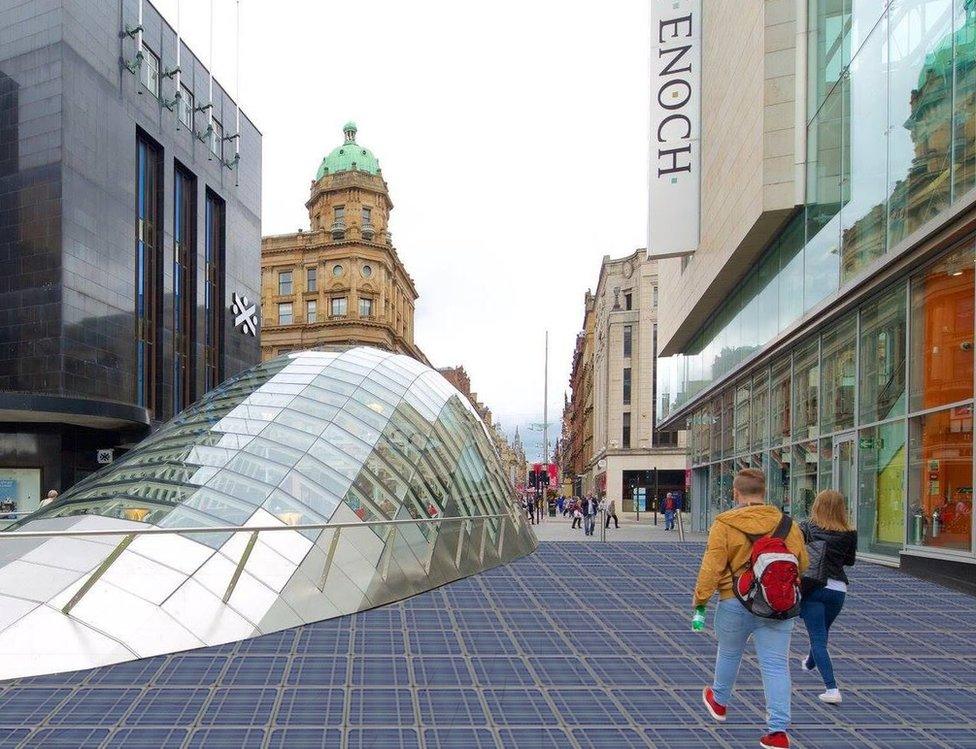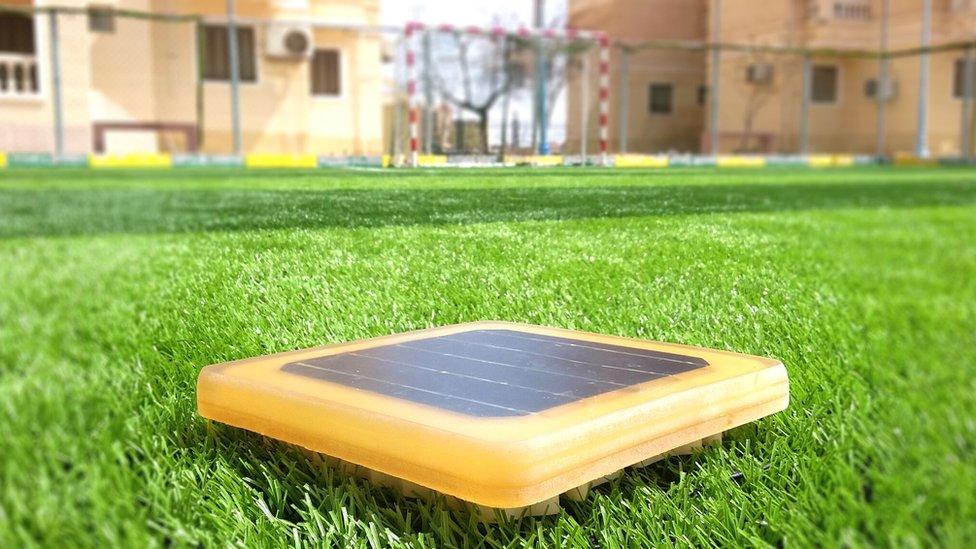Walking on sunshine: The pavements that generate solar energy
- Published

The solar pavement could be piloted in Glasgow
The organisers of the 2022 World Cup in Qatar are backing a Scottish-based project that will have fans walking on sunshine.
The international team, led from Glasgow Caledonian University, is creating pavements that gather energy from the sun.
In a laboratory in Glasgow sits evidence that one Scottish-based team has already qualified for Qatar 2022.
In front of lecturer Dr Azmy Gowaid sits an array of three solar tiles.
He flicks a couple of switches. An array of lightbulbs glows, a cluster of fans whirrs busily.
All powered by such less-than-glorious sunlight as has found its way through the laboratory window.
Solar panels are nothing new but these tiles are designed to lock together in their hundreds to create a solar pavement.
They are coated in a tough epoxy resin and will have a scuff and slip-proof finish in a range of colours.
But why seek solar power beneath people's feet?
Dr Gowaid says the spread of solar energy means roof space will be a diminishing resource. Meanwhile, cities are getting more dense as electricity demand rises.
So he is taking renewable energy to the streets.

The idea has won an award from the Qatar 2022 organising committee. They are backing the PVTopia project to create a prototype with the aim of demonstrating a full solar pavement during the tournament.
Dr Gowaid says that will power more than just a few fans and light bulbs.
"With some tricks, mechanically and electrically, we can make the system safe for people to walk on while feeding the energy to a nearby building," he said.
"As it's situated on the pavement, you can have the system feeding into street lighting or traffic systems."
Dr Gowaid leads a team that includes electrical and mechanical engineers and business experts at Glasgow Caledonian, and at the University of Alexandria in Egypt and Texas A&M University Qatar.
He says the tiles are simple to make and can handle the high temperatures of the Gulf thanks to an innovative cooling system.
There is also more to their eco-friendly attributes than the solar power they produce. They are made from recycled materials which can be recycled once again at the end of an anticipated 20-year lifespan.
Encouraging innovation
The project is one of a number awarded by the Challenge 22 programme of the Qatar tournament's Supreme Committee for Delivery & Legacy.
Its creator Fatma Al Nuaimi says it is as much about delivering a meaningful legacy as about the tournament itself.
"We set up the legacy programme for exactly this reason - to support entrepreneurs, innovators and scientists like Dr Gowaid," she said.
"What the team at PVTopia is doing is incredible and we can't wait to see everything in action at the World Cup."
The first pilot pavement is expected to be laid in Glasgow next year before the full-scale rollout at the tournament.
After that, Dr Gowaid anticipates the system could be used in public squares, schools and university campuses.
The tiles are tough. They have to be to survive the same sort of punishment paving stones do.
I was invited to dunk one in a bucket of water. It emerged unscathed. Similarly when I dropped it onto a concrete floor.
The ultimate test was being walked on. Would it survive the footsteps of your correspondent, one of nature's chunkier chaps?
The lights didn't even flicker. If the tiles can withstand that, they are likely to withstand anything.
Now all we need is for Scotland to qualify for Qatar 2022. Then the Tartan Army really would be walking on sunshine